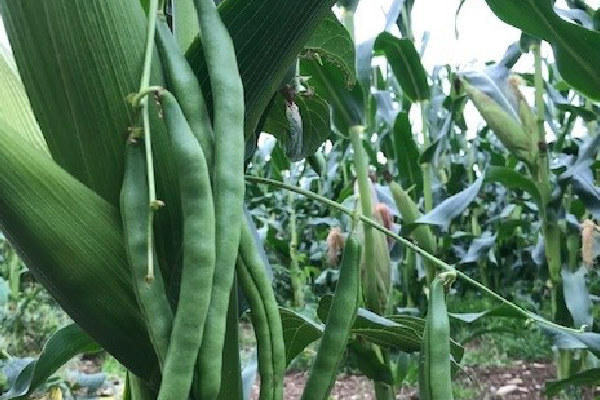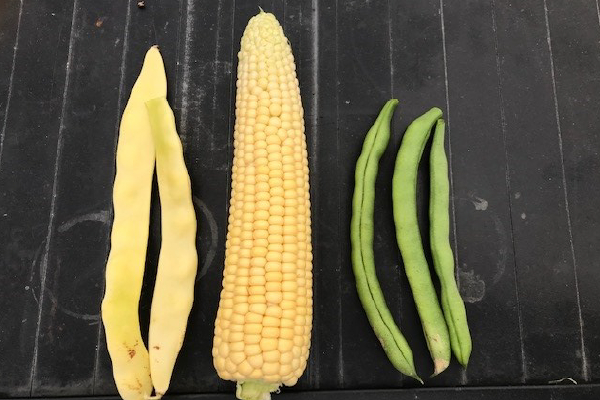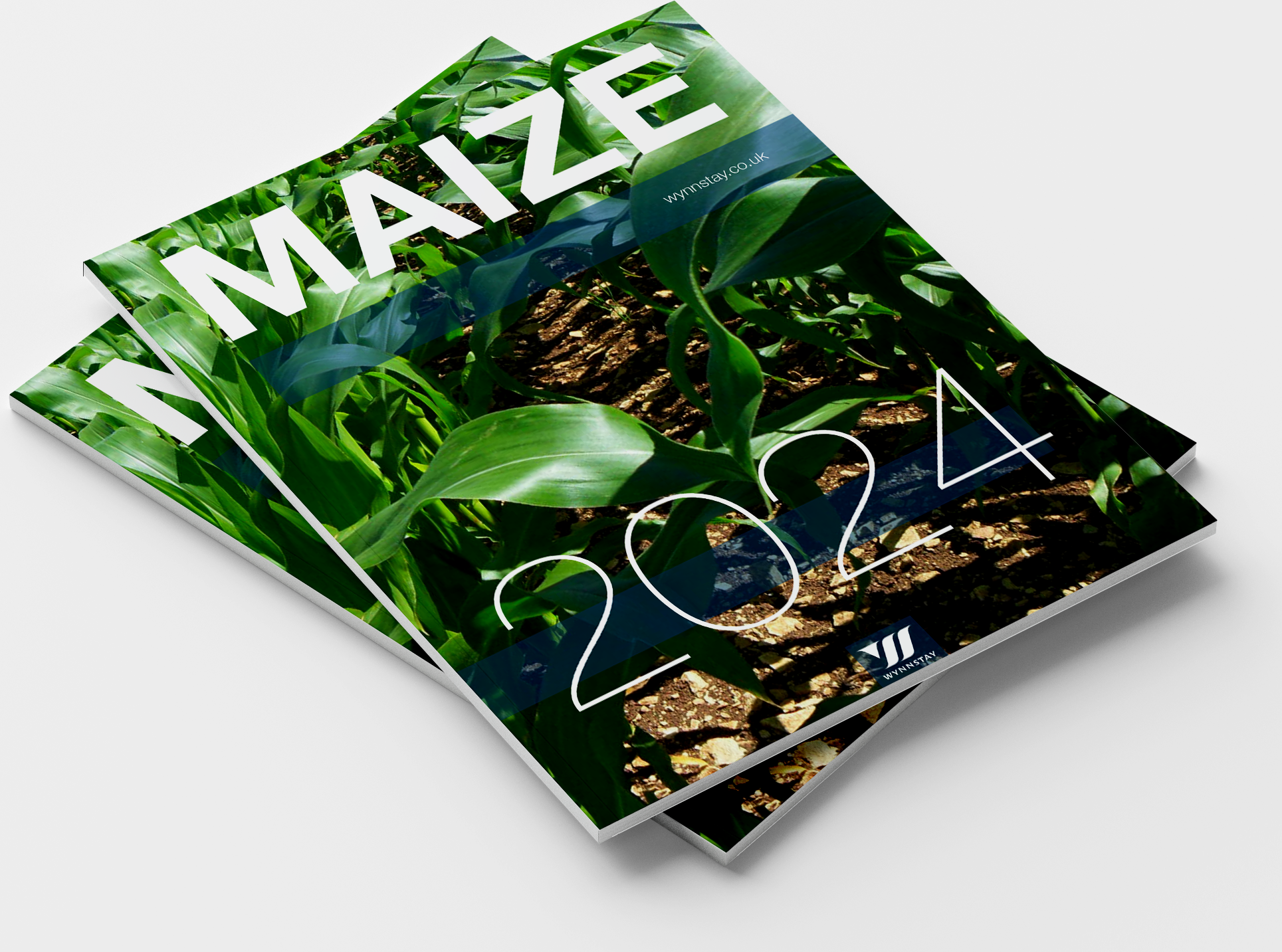Jonathan Evans farms at Berry Hill near Newport, Pembrokeshire, alongside his father, uncle, grandparents, and cousins. The family farm has 154 hectares where they grow grass, maize, forage rape, forage rye, and hybrid rye. In an attempt to reduce purchased feed costs and cut soya out of diets, in 2022 they undertook a novel trial and intercropped maize and beans to support the 190-cow herd.
“Over the winter, costs were rising and so I started to look at ways that we could increase our home-grown protein rather than rely on rape meal. I found that they were intercropping maize and beans in Germany, and thought that if that worked in their climate it might also work here. After speaking to my agronomist, I approached Ben Williams at a Glanbia Cheese (GCUK) supplier meeting and discussed my idea with him and we grew intercropped maize and beans for the first time last year” says Jonathan Evans.
"The fields will be sown with rye overwinter and then be put back into maize in the spring. Despite the challenges, the family at Berry Hill are optimistic about the trial’s prospects for increasing their sustainability. “Overall, we are really pleased with how the trial went and considering it was a challenging year the crop grew well,”
Next time we will be more proactive with applying herbicides before the maize is sown and will cultivate between the rows after the maize is established and before the beans go in. We hope that intercropping will help us reduce purchased feed, grow more on farm protein, and increase our milk yield from forage.” - Jonathan Evans
Wynnstay’s head of dairy, David Howard, says that a new dairy ration will not be formulated until the crop is analysed, but beans can be an attractive alternative to soya and other purchased proteins






What does the Agronomist think?
We had to find the right variety of beans – with a low phizing content – which meant they had to be imported from Germany.
On the maize side, we went for Gema as an early variety that yields well, and then tried Prospect to see which would ripen at the same time as the beans.” Problems with customs meant the beans had to be sown in June rather than in May when the maize was between the one and three-leaf stage and still flexible. The farm also suffered a significant drought making it difficult to work around restrictions on spray type and application windows to control weeds.
It’s difficult to quantify any benefits of the trial until we’ve seen the impact on the farm's overall carbon footprint.
The combination of drought, crow damage, and seed rate resulted in a lower bean yield than expected, but we’re already thinking of ways to get around this.
What does the Dairy specialist think?
Beans are a good source of bypass protein and offer a balance of amino acids which meets the cows.
“Matching the protein profile of the diet to the cow’s amino acid requirement reduces waste and improves diet efficiency. Around 60 to 70% of the protein consumed by cows is lost as urea-N. Excess protein in the diet is converted to urea for excretion, using energy which could be used for other purposes.
“Protein is the most expensive element in a dairy diet therefore growing part of the cow's requirement on farm represents a saving on what must be purchased as well as reducing the farm's carbon footprint.
A collaborative approach between all parties has been key to implementing the trial at Berry Hill and making Mr Evans’s idea a reality.
It’s been an absolute privilege to work with such a forward-thinking and open-minded farm and we’re excited to see what opportunity this home-grown crop could bring for Mr Evans and other farmers in the future.















